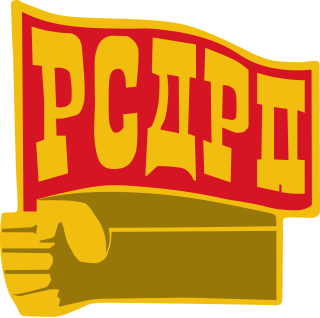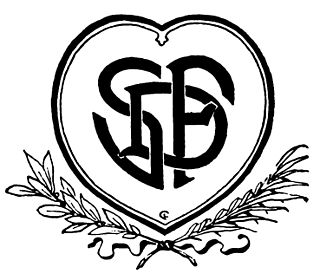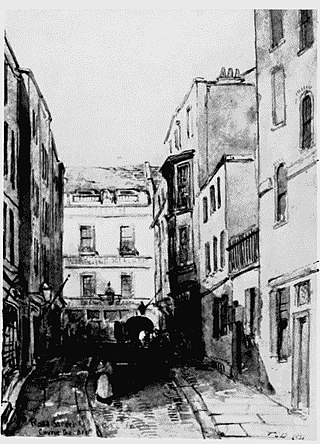Related Research Articles

The Independent Labour Party (ILP) was a British political party of the left, established in 1893 at a conference in Bradford, after local and national dissatisfaction with the Liberals' apparent reluctance to endorse working-class candidates, representing the interests of the majority. A sitting independent MP and prominent union organiser, Keir Hardie, became its first chairman.

Socialism in New Zealand had little traction in early colonial New Zealand but developed as a political movement around the beginning of the 20th century. Much of socialism's early growth was found in the labour movement.

The Workers' Socialist Federation was a socialist political party in the United Kingdom, led by Sylvia Pankhurst. Under many different names, it gradually broadened its politics from a focus on women's suffrage to eventually become a left communist grouping.

Anarchism in the United Kingdom initially developed within the religious dissent movement that began after the Protestant Reformation. Anarchism was first seen among the radical republican elements of the English Civil War and following the Stuart Restoration grew within the fringes of radical Whiggery. The Whig politician Edmund Burke was the first to expound anarchist ideas, which developed as a tendency that influenced the political philosophy of William Godwin, who became the first modern proponent of anarchism with the release of his 1793 book Enquiry Concerning Political Justice.
Samuel Mainwaring was a Welsh machinist and socialist political activist who was a founding member and key leader of the Socialist League, one of the first socialist political parties in Britain. In his later years, he turned from Marxist socialism to the libertarian socialist doctrine of anarcho-communism. He is best remembered as the father of the term "anarcho-syndicalism".
Ambrose Barker was a British anarchist activist.

Anarchism in Ireland has its roots in the stateless organisation of the tuatha in Gaelic Ireland. It first began to emerge from the libertarian socialist tendencies within the Irish republican movement, with anarchist individuals and organisations sprouting out of the resurgent socialist movement during the 1880s, particularly gaining prominence during the time of the Dublin Socialist League.

The Socialist League was an early revolutionary socialist organisation in the United Kingdom. The organisation began as a dissident offshoot of the Social Democratic Federation of Henry Hyndman at the end of 1884. Never an ideologically harmonious group, by the 1890s the group had turned from socialism to anarchism, and disbanded in 1901.
Tom Maguire was a British socialist, trade union organiser and poet from Leeds.

The International Workingmen's Association (IWA), often called the First International (1864–1876), was an international organisation which aimed at uniting a variety of different left-wing socialist, social democratic, communist and anarchist groups and trade unions that were based on the working class and class struggle. It was founded in 1864 in a workmen's meeting held in St. Martin's Hall, London. Its first congress was held in 1866 in Geneva.

The Russian Social Democratic Labour Party, also known as the Russian Social Democratic Workers' Party or the Russian Social Democratic Party, was a socialist political party founded in 1898 in Minsk.

The Social Democratic Federation (SDF) was established as Britain's first organised socialist political party by H. M. Hyndman, and had its first meeting on 7 June 1881. Those joining the SDF included William Morris, George Lansbury, James Connolly and Eleanor Marx. However, Friedrich Engels, Karl Marx's long-term collaborator, refused to support Hyndman's venture. Many of its early leading members had previously been active in the Manhood Suffrage League.
Frank Kitz was an English anarchist.
Henry Alfred Barker was a British socialist activist.

The Rose Street Club was a far-left, anarchist organisation based in what is now Manette Street, London. Originally centred around London's German community, and acting as a meeting point for new immigrants, it became one of the leading radical clubs of Victorian London in the late-nineteenth century. Although its roots went back to the 1840s, it was properly formed in 1877 by members of a German émigré workers' education group, which soon became frequented by London radicals, and within a few years had led to the formation of similar clubs, sometimes in support and sometimes in rivalry. The Rose Street Club provided a platform for the radical speakers and agitators of the day and produced its own paper, Freiheit—which was distributed over Europe, and especially Germany—and pamphlets for other groups and individuals. Although radical, the club initially focused as much on providing a social service to its members as on activism. With the arrival of the anarchist Johann Most in London in the early 1880s, and his increasing influence within the club, it became increasingly aligned with anarchism.

The Stratford Dialectical and Radical Club was a late nineteenth-century radical club based in Stratford, East London. Founded in 1880 by disaffected members of the National Secular Society who wished their organisation would involve itself in the social and political issues of the day rather than merely argue against the existence of God, it became one of the first openly socialist societies in London. Although it only existed for a few years, the club attracted high-profile lecturers, including Russian anarchist Peter Kropotkin, and is considered by scholars to illustrate a shift in popular perspective from religious dissent to socialist political theory.
Arthur George Field was a British trade unionist and socialist activist.
Joseph Lane was an English libertarian socialist campaigner.

James Tochatti, was a Scottish anarchist agitator, merchant tailor, trade unionist, newspaper editor and public speaker. From 1894 to 1896 he was editor of the monthly anarcho-communist paper Liberty.
References
- ↑ Quail 2019, pp. 34–35.
- ↑ Quail 2019, pp. 37–38.
- 1 2 Quail 2019, pp. 38–39.
- ↑ Quail 2019, pp. 49–51.
- ↑ Quail 2019, pp. 52–53.